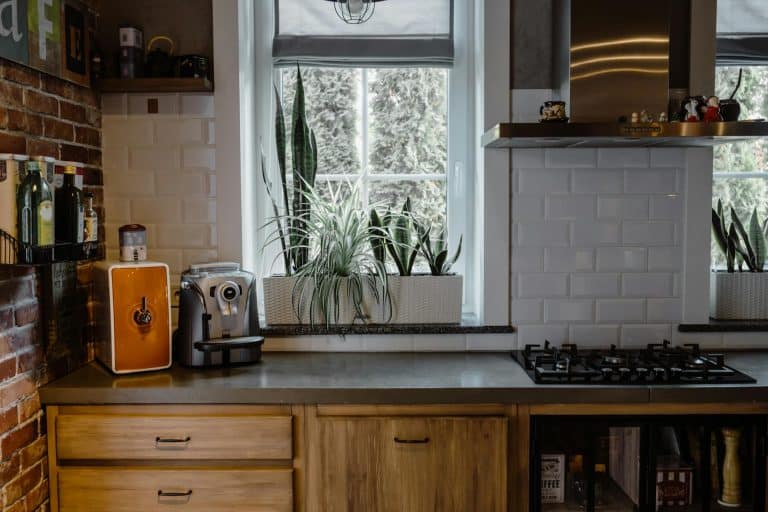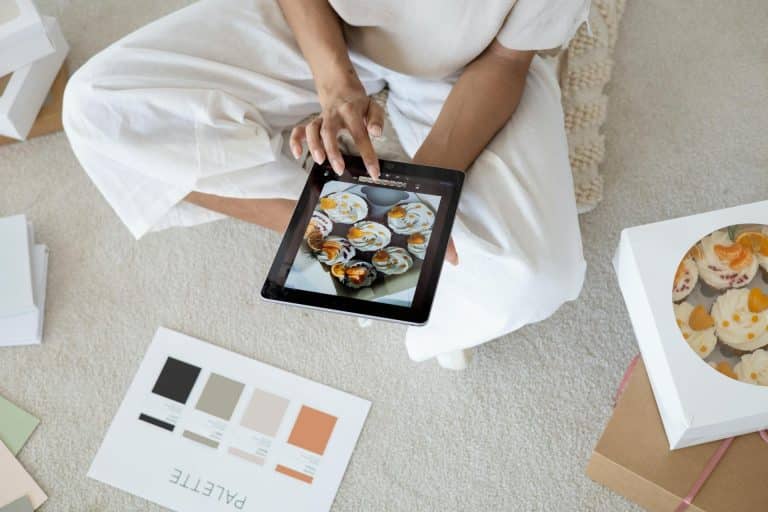Making your kitchen more eco-friendly doesn’t have to be a big project or cost a lot of money. In fact, a few simple changes in how you cook, clean, and store things can go a long way in reducing waste and saving energy. Whether you’re just starting out or already trying to live greener, these easy tips will help you turn your kitchen into a more sustainable space without adding any extra hassle to your routine.
7 Eco-Friendly Kitchen Swaps That Actually Make a Difference
Here are 7 eco-friendly swaps you can make in your kitchen to reduce waste, save money, and create a cleaner space for your home and the planet:
1. Switch to Reusable Cloths for Everyday Cleaning
Instead of paper towels that get used once and tossed, go for reusable cloths that last longer and do a better job. One simple swap you can make is using the Copper Clothing Kitchen Towel which is infused with copper, which naturally fights germs and odors. You can use it to wipe down counters, clean spills, and even dry dishes. It saves you money in the long run and helps reduce waste in your kitchen.
2. Cut Down on Packaging Waste
Be mindful of how much plastic and unnecessary packaging comes into your home through grocery shopping. Choose loose fruits and vegetables instead of pre-packaged ones. Carry your own cloth bags or containers when you shop. Small changes like these help reduce the amount of single-use plastic piling up in your kitchen bin.
3. Compost Your Kitchen Scraps
Turn your kitchen scraps into something useful by starting your own composting routine. It’s easier than you might think. Instead of tossing fruit peels, veggie bits, or coffee grounds into the trash, collect them in a small countertop compost bin. Once it fills up, transfer the contents to a larger compost pile or outdoor bin. Not only does this cut down on your kitchen waste, it also gives you rich, natural compost that your plants will love. It’s a simple habit that helps both your home and the environment.
4. Use Cookware That Lasts
What you cook with is just as important as what you cook. Choosing the right cookware and utensils can make your kitchen more sustainable. Go for sturdy, long-lasting materials like stainless steel, cast iron, or bamboo. These not only perform well but also stay out of landfills much longer than non-stick pans that wear out easily.
When it comes to utensils, skip the plastic ones. Instead, pick bamboo or items made from recycled materials. They’re better for the planet and add a natural touch to your kitchen setup. Small switches like these can lead to a cleaner, greener kitchen over time.
5. Install a Kitchen Water Filter
Skip the bottled water and install a kitchen water filter instead. A good filter gives you clean, safe drinking water straight from your tap, without the need for plastic bottles. It’s a simple change that cuts down on waste and saves you money over time.
Keep a reusable water bottle or an eco-friendly collapsible cup handy, and you’re all set. With filtered water at home and a refillable bottle on the go, there’s really no reason to rely on bottled water anymore.
6. Make Your Own Cleaning Products
Most store-bought cleaning products come with harsh chemicals and too much packaging. You can avoid both by making your own simple, eco-friendly cleaners at home.
For an all-purpose cleaner, just mix vinegar, water, and a few drops of essential oil. It’s great for wiping down surfaces and leaves your kitchen smelling fresh. For stubborn stains, a paste made from baking soda and water works surprisingly well.
These homemade solutions are gentle on your family, safe for the environment, and easy on your wallet too.
7. Pick Eco-Friendly Kitchen Furniture and Layouts
Give your kitchen a fresh and sustainable touch by reusing what you already have. Turn old glass jars into handy storage containers for spices, grains, or snacks. Hang vintage utensils on the wall for a bit of charm and personality. Wooden crates can be stacked or mounted to create practical shelves that stand out.
If you’re planning to add a kitchen rug, you don’t need to guess how it will look. With the DressMyCrib AI Rug Visualizer, you can upload a photo of your kitchen and see how different rugs work in your space before you buy. It’s an easy way to avoid returns while picking a rug you’ll love for years.
These small changes don’t just make your kitchen more unique; they also cut down on the need for new materials. It’s a simple way to decorate with purpose and reduce waste at the same time.
Closing Thoughts
Going green in the kitchen doesn’t have to feel like extra work. These small changes fit easily into your daily habits and slowly add up to a cleaner, more mindful space. Whether it’s swapping paper towels for cloth or reusing old jars, each step helps you waste less and live more consciously. Start with one or two swaps, and see how they fit into your routine. Over time, you’ll notice the difference without even trying too hard.













